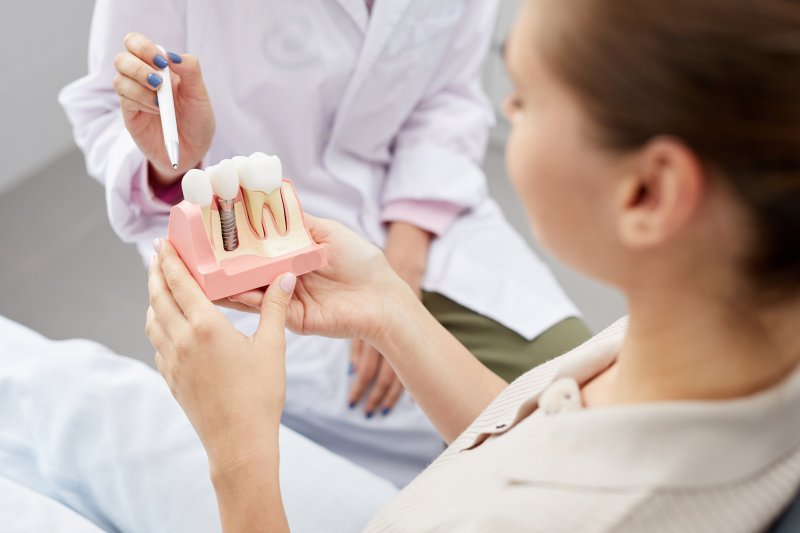
Teeth grinding is an unhealthy habit that affects millions of people. It most often occurs at night, and the level of damage can range from frequent headaches to sore jaw joints and worn tooth enamel. If left untreated, it can become problematic, especially if someone has dental implants. Whether you are already living with these permanent prosthetics or are considering them as a way to restore and rebuild your smile, keep reading to find out how bruxism (teeth grinding) can lead to implant failure and what can be done to prevent it.
How Bruxism Negatively Affects Getting Dental Implants
While it is possible to receive dental implants even if you grind your teeth, there are certain measures you’ll need to take to ensure the safety of your smile. Failing to do so can lead to costlier and more time-consuming treatment.
The reason bruxism makes having dental implants more challenging is that osseointegration must be successful if your new teeth are to remain firmly intact. Since the titanium posts must fuse with the jawbone to establish a solid foundation, it’s imperative that you abide by the dentist’s orders during your recovery. Part of this process is not placing additional pressure on your implants, as they need time to heal and integrate with the surrounding bone tissues. If you grind or clench your teeth at night, though, it prevents osseointegration from occurring and can ultimately lead to dental implant failure.
Another important factor that makes bruxism a problem for dental implants is that these artificial teeth don’t possess the same periodontal ligaments as natural ones do. This stretchy bit of tissue can withstand pressure when regular teeth are in place; however, it’s not present among dental implants.
How to Protect Your Dental Implants from Bruxism
To treat your bruxism and better protect your dental implants (and any natural teeth), your dentist will need to determine the underlying cause of your teeth grinding habit. This may be the result of stress, a misaligned bite, or jaw pain.
No matter the reason, there are suitable treatment options available that can make living with permanent prosthetics possible. They include:
- Custom Nightguard – Custom-made nightguards can be effective in preventing additional wear and tear on natural tooth enamel as well as dental implants. The device is worn at night and keeps the upper and lower rows of teeth from touching. This reduces enamel erosion and alleviates jaw soreness.
- Lifestyle Changes – If your bruxism is brought on by stress, you’ll need to find ways to alleviate it. Whether it’s from work, school, family, or anything else, talking to a counselor, increasing your exercise, reading a book, taking a long bath, or simply going on a walk can help reduce the stress in your life.
Dental implants can be one of the greatest choices you’ll make when it comes to your oral health. Make sure you get the treatment you need for your teeth grinding so that your smile can last a lifetime.
About Grand Dental – Channahon
Grand Dental – Channahon consists of dentists who are skilled and equipped to provide dental implant placement and restoration as well as custom-made nightguards to patients. When treating teeth grinding among those who are living with permanent prosthetics, we can have a uniquely designed mouthguard crafted to fit comfortably so that damage to the implant restoration does not occur. If you would like to learn more about how we can treat bruxism while living with dental implants, visit our website or call (815) 240-9009.
